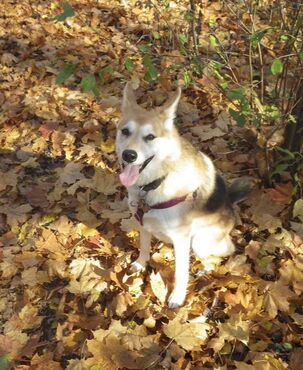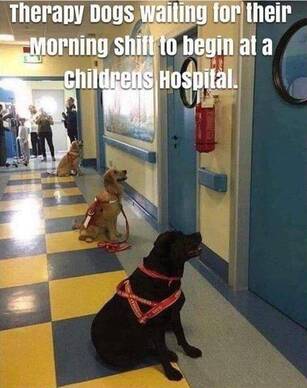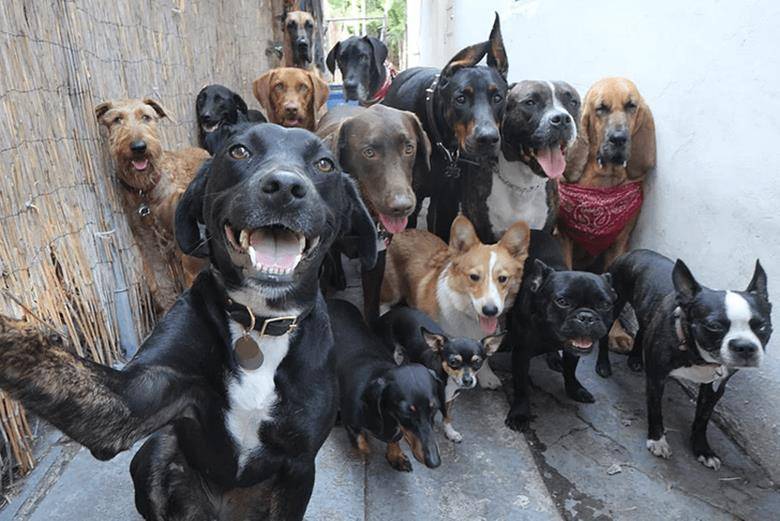 GRACE GRACE LONDON, ONTARIO – We had a distressing little moment with our pooch on Saturday night. After supper we had settled in with tea to watch The Ox-Bow Incident (1943); a surprisingly dark meditation on conscience, justice and the tyranny of mobs which comes in the easily digestible form of a black and white Western starring Henry Fonda. For about the first fifteen minutes of the flick, twelve and a half year-old Gracie – a mostly collie and German shepherd mutt of such arresting beauty that I walk her at 2 a.m. to keep interactions with random admirers to a minimum – discreetly positioned herself to the immediate right of my chair. This oh-so casual insinuation on her part is in fact a canny bit of deliberation which unfailingly induces me to mindlessly pat and stroke her head, scritch her behind the ears and do this thing where I gently grip her muzzle and give it a little shake. (No other dog I have ever known tolerates, let alone likes, that last bit.) As is her usual routine with these ministrations, Gracie eventually became a little dreamy, leaning into my leg and closing her eyes, and then melted herself down onto the floor in descending stages until she lay, sprawled in sleep, just beyond the reach of my hand. When I got up for some refueling about an hour later, there she was contentedly flaked out at my feet. I asked her to move and she didn’t respond. Then I gently slipped a foot under her rump – which usually makes her snap to with alacrity – and still she didn’t budge. “Our dog has apparently died,” I announced to my wife, half joking and half dismayed and (if I can be allowed a third half) also thinking – as sad as this moment might turn out to be – that this is just what I have always wanted our ageing dogs to do when it comes time to meet their maker; just quietly expire at home and spare us the ‘should we?’ or ‘shouldn’t we?’ agony of booking and then keeping a ‘put down’ appointment at the vet. I reached down with my hand to prod and push her and still she laid utterly dormant and even seemed to feel kind of boneless and cool to the touch. “Yikes,” I thought, bending closer and shaking her a whole lot more which disturbed her enough that she lazily lifted up her head and beheld me with an expression of, “What exactly is your little problem, buster?” “Ah, not dead after all,” I said, sighing in relief. “Good girl.” And at the sound of those two words (which often suggest that a biscuit might be in the offing) she smartly gathered up her groggy wits from wherever she’d dropped them and scrambled up onto her pins. We’ve been watching her like proverbial hawks for the last couple of days and while she certainly has become a deeper sleeper than we ever noticed before (and as might well befit a creature who’s now 87 and a half in doggie years) everything else – from her appetite to her eagerness to go for walks to her ecstatic dance of welcome whenever our youngest daughter drops by – seems to be in good working order. So the only real effect of what appeared to be Gracie’s near-death-experience-but-wasn’t, is that we catch ourselves gazing at her several times each day and thinking, “Man, I’m glad that you’re here.” And it’s always a salutary thing to occasionally let go of all the niggly concerns and news bulletins that trouble one’s existence to remember that rather more fundamental fact that you and a whole bunch of creatures you love are alive. And over the sixty-nine years I have so far passed in the company of six splendidly distinctive dogs, (each of them demarcating my life into readily distinguishable eras – the Boots years, the Arnold years, the Myrtle years, the Ben years, the Badger years, the Grace years) something I’ve particularly appreciated about all of them has been their knack of effortlessly ‘taking me out’ from time to time – and I mean ‘taking me out’ in just about every sense of that term. Out for walks and a change of view, of course. How often have I headed out with my dog in a state of stalled frustration where I’m ready to hang up my work for the day, and then returned in the rejuvenated grip of new inspiration and a second wind? All of it brought on by the simple act of putting my mind somewhere else for an hour and letting that four-legged engine of curiosity lead me along and show me all the best-smelling stuff that's out there to be sniffed in the real world.  Out of nagging regrets or anxieties that are monopolizing way too much of my attention. Dogs are absolute geniuses at this. Think about what the visit of a guileless dog can do to the mood of a nursing home or a hospital ward. And compared to people in those situations, what have I got to rue or fear? Whether such feelings are over-indulged chimera or all too real, nothing dispels remorse or fear – at least for a while – quite so effectively as the vigorously thwacking tail of a dog who’s glad to see you. Out of myself and egoistic concerns about my own importance and priority. What salve it can be to a neurotically over-manicured soul to spend some quality time in the company of a happy creature with no self-consciousness whatsoever and no sense of its dignity or reputation. And in perhaps the most liberating manifestation of them all, even out of my humanness. In a diary entry from the 1920s, the notably unsentimental author Edith Wharton (1862-1937) touched on this last meaning of being ‘taken out’: “I am secretly afraid of animals—of all animals except dogs, and even of some dogs. I think it is because of the Usness in their eyes, with the underlying Not-Usness which belies it, and is so tragic a reminder of the lost age when we human beings branched off and left them; left them to eternal inarticulateness and slavery. Why? their eyes seem to ask us.” I'm guessing that the slavery Wharton is talking about is a dog’s strict allegiance to its nature and its appetites which they never even pretend to have risen above or escaped unless we've trained them very rigorously and are standing right beside them when temptation strikes. But I think what Wharton fails to recognize is that human beings’ ‘articulateness’ just as certainly enchains us to a different kind of slavery which dogs don’t suffer from at all – a slavery to our aspirations and ideals. No, I do not advocate tossing aside those aspirations completely. Without them, human beings can quickly become far more beastly than the worst beast there is. (I think I would nominate Tasmanian devils for that distinction; they are utterly loathsome critters.) But I do not think it does us any harm to set such aspirations aside for a spell when the very finest and most trustworthy beasts of them all - like Gracie - do us the honour of inviting us to commune with them in that lost and haunting world of pre-articulation. .
3 Comments
Jim Chapman
23/8/2021 06:23:30 pm
Amen, amen, amen.
Reply
Max Lucchesi
25/8/2021 12:13:31 am
What dog owner isn't left with a wealth of memories when the mutt goes? I have a 13 year old German shorthaired pointer named Bessie sitting beside on the couch waiting to be cuddled. I thought all dogs like to be shaken gently by their muzzles; all I have known have. We should have the empathy for each other as that shown by an unspoilt woofer in the many ways they help us. Herman there are far too many 'humans ' far more beastly than beasts. Good stuff!
Reply
Susan Cassan
25/8/2021 09:46:03 am
Yike! Nearly fell out of my chair! Worried about Gorgeous Gracie….
Reply
Your comment will be posted after it is approved.
Leave a Reply. |
HERMANEUTICS
If you would like to contribute to the ongoing operations of Hermaneutics, there are now a few options available.
ALL LIFE IS A GIFT :
THE IMPORTANCE OF TRADITION :
Archives
June 2024
Categories
|


 RSS Feed
RSS Feed